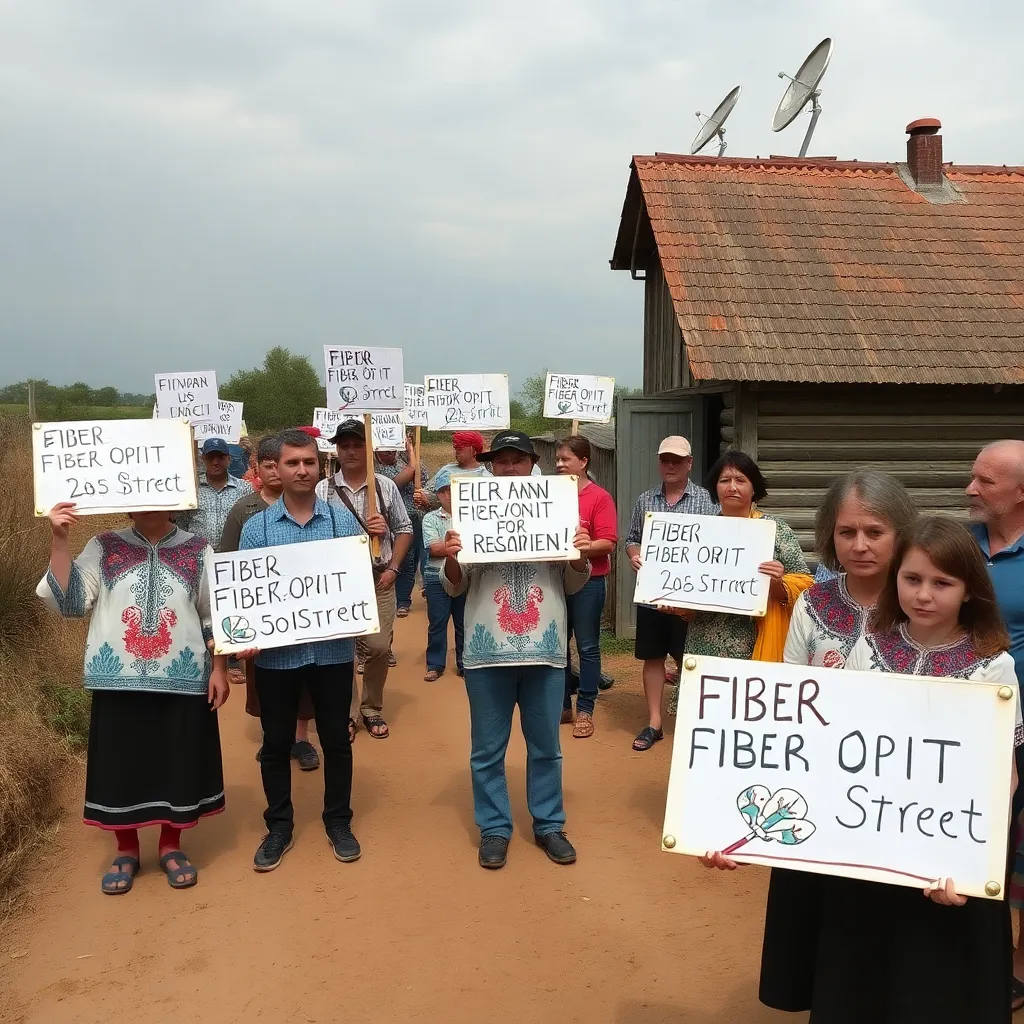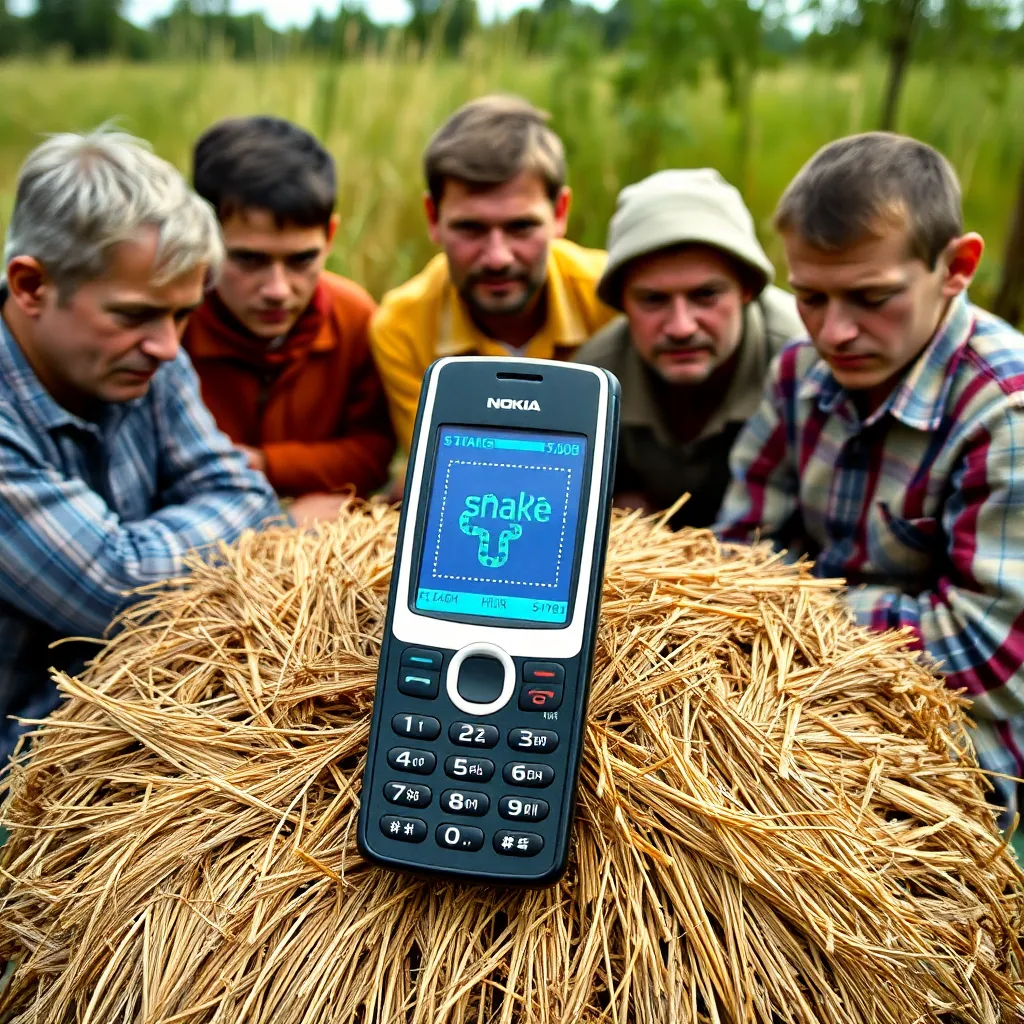In a tragicomic turn of events that has left the nation collectively facepalming, the Ukrainian village of Merizheve (population: 312, plus one very smug mayor) has descended into digital anarchy after a full week without internet. Residents, now forced to communicate via interpretive dance and carrier pigeons equipped with micro-SD cards, gathered en masse on Fiber Optic Street—the village’s sole thoroughfare, ironically named after the very technology that has abandoned them—to demand answers from local authorities. The protest, dubbed “#NoSignalNoPeace” by villagers who still remember how hashtags work, centers on the glaring injustice that only two buildings in the entire village retain internet access: the mayor’s mansion (which now streams 8K cat videos 24/7) and the village council office (where officials binge-watch rural development webinars).
Mayor Oleksandr “Wi-Fi King” Petrenko defended the status quo in a press conference held via smoke signals, stating, “The internet absolutely exists in Merizheve! It’s right here in my study, where I’ve personally verified its presence by downloading three entire seasons of The Crown. If citizens lack connectivity, perhaps they should invest in better… enthusiasm.” When pressed about why the village’s sole fiber optic cable appears to terminate in his backyard hot tub, the mayor shrugged and muttered something about “bandwidth taxes.”
Meanwhile, the internet service provider, Cloud99 (motto: “We’re Not Saying It’s Magic, But…”), insists customers must report outages exclusively via email or phone—a cruel joke in a village where the only working phone is a 1998 Nokia brick owned by Babushka Olena, who uses it solely to play Snake. “Our support team is always available online!” chirped a Cloud99 spokesperson via a TikTok video filmed inside a Faraday cage. “Just visit cloud99.support/helpdesk?session=eternalbuffering to submit a ticket!”
Desperate villagers who hitchhiked 127 kilometers to Cloud99’s regional office in Kharkiv were met with a laminated sign reading, “In-Person Visits: Please Use Our Online Portal.” Undeterred, they filed a lawsuit demanding reimbursement for travel costs, only for Cloud99’s legal team to counter that plaintiffs “could have simply ridden a horse to neighboring Signalville, where free Wi-Fi allegedly rains from the sky like manna.” Judge Mykola Bytesky dismissed the case, ruling that “the concept of ‘internet access’ is purely theoretical and therefore not subject to municipal jurisdiction.”
As tensions escalate, Merizheve’s youth have begun ritualistically burying smartphones in the village square, hoping to appease the “Algorithms of Connectivity.” Meanwhile, the mayor has announced plans to monetize the crisis by selling bottled “5G Air” sourced from his router’s ventilation fan. When asked if he’d consider sharing his Wi-Fi password, Petrenko smirked: “Only if they bring me a sacrifice of 500Mbps.”
Local experts speculate the outage will resolve itself once the village collectively achieves “peak irony.” Until then, Merizheve remains a cautionary tale about the perils of naming your street after technology you don’t understand.


